MercoPress. South Atlantic News Agency
Argentina
-
Thursday, February 18th 2010 - 21:36 UTC
Argentina looking for mainland business links of Falkland oil companies

The Argentine government is looking into the British oil companies involved in the Falkland Islands exploratory drilling operation checking on their possible links to interests in Argentina (and if so the infringement of legislation of Argentine legislation), according to reports in the Buenos Aires press.
-
Thursday, February 18th 2010 - 13:48 UTC
Argentine consumers expect inflation in next 12 months to reach 30%

Argentines expect consumer prices to rise 31.1% over the next 12 months, led by higher forecasts from the lower income category, according to the average estimate in a poll from Torcuato Di Tella University.
-
Thursday, February 18th 2010 - 01:17 UTC
Argentine protests Falklands oil drilling before the Rio Group and UN
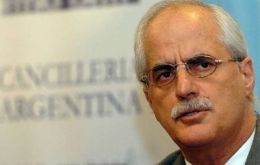
Argentina will be pressing next Monday for support from Latinamerica and the Caribbean, and on Wednesday at United Nations, in its dispute over the oil drilling round about to being in the Falkland Islands.
-
Thursday, February 18th 2010 - 00:02 UTC
Argentine consumers boycott meat to force lower prices
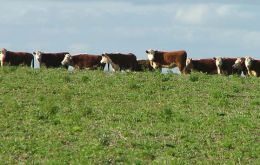
A consumer group had called on Argentines, world leaders in beef consumption, to boycott the meat for a week in an effort to lower prices, according to news reports from Buenos Aires.
-
Wednesday, February 17th 2010 - 03:24 UTC
Mrs. Kirchner calls UN to force UK to Falklands’ sovereignty negotiations

Argentine President Cristina Fernández de Kirchner defended her decision to place stronger controls on navigation and shipping within the Falklands called on the United Nations to force the United Kingdom to come through on negotiations over the sovereignty of that territory.
-
Wednesday, February 17th 2010 - 01:39 UTC
Mr. Kirchner prepares comeback with his mind on the 2011 election

Former Argentine president Nestor Kirchner (2003/2007) is scheduled to reappear in a political rally next week for the launching of his presidential pre-campaign, the first such appearance since he underwent an emergency and delicate surgery in his carotid earlier in the month.
-
Tuesday, February 16th 2010 - 21:35 UTC
Argentine hake catches down 60% in first 42 days of 2010
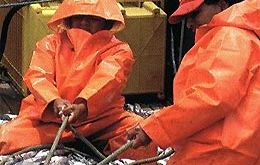
Argentine ports received 9,246.4 tons of common hake (Merluccius hubbsi) between January 1 and February 12 this year which is 60% less than the 23,200 tons for the same period a year ago.
-
Tuesday, February 16th 2010 - 19:30 UTC
Argentina demands prior approval for vessels sailing to Falklands
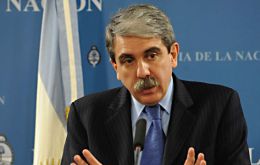
The Argentine government made public Tuesday a decree that requires prior approval for ships sailing between Argentina and the Falkland Islands. The approval will be needed for vessels travelling “or carrying goods directly or indirectly” between the mainland and the Islands, announced cabinet chief Anibal Fernandez during a press conference at Government House.
-
Monday, February 15th 2010 - 20:21 UTC
Mrs. Kirchner willing to discuss with opposition about central bank reserves
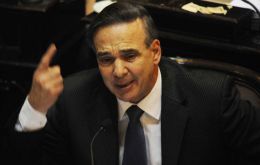
The administration of Argentine president Cristina Fernandez de Kirchner said it is willing to discuss with the opposition the Bicentennial Fund project which aims to service public debt with reserves from the Central Bank and which triggered a three branches confrontation that ended in the resignation of the bank’s president Martin Perez Redrado.
-
Monday, February 15th 2010 - 06:19 UTC
Argentine government lacks Senate support to tap Central bank reserves
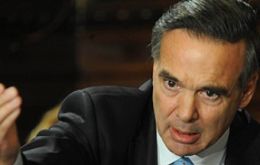
Argentina’s government lacks the support needed in the Senate to approve President Cristina Fernandez de Kirchner’s plan to tap 6.6 billion US dollars in Central Bank reserves to pay sovereign debt due this year, ruling party Senator Miguel Pichetto admitted on Sunday.
